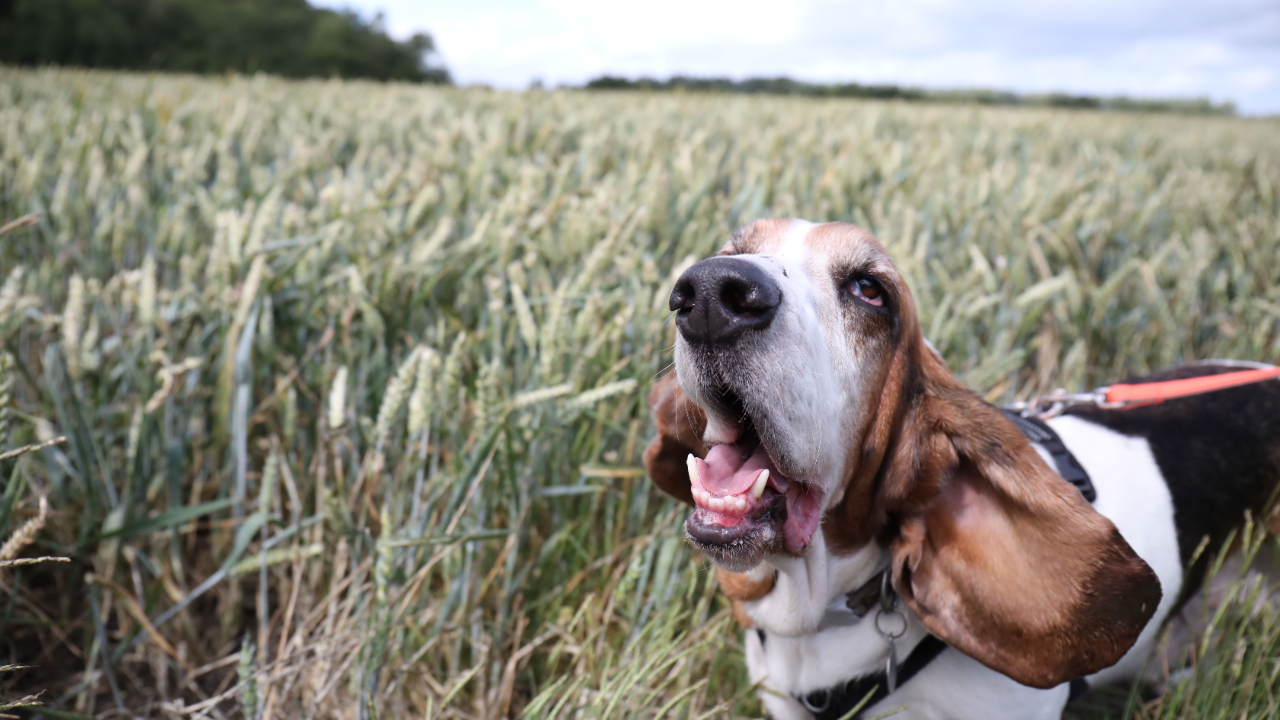
Rethinking Our Language: Your dog isn't stubborn
Jul 23, 2025Why Is My Dog So 'Stubborn'?
Have you ever found yourself saying your dog is "just being stubborn"? You’re definitely not alone. It's one of the most common labels dog guardians reach for when their dog doesn't seem to be listening, responding, or following cues they supposedly 'know'.
But here's the thing: calling your dog stubborn might be the very thing getting in the way of your progress - and your relationship.
Why Calling Your Dog 'Stubborn' Is Holding You Both Back
At first glance, the word seems harmless. It's a catch-all that implies your dog is being wilfully difficult, digging their heels in, or simply ignoring you on purpose.
But when we label a dog as stubborn, we stop asking questions.
It becomes a reason not to look deeper.
A reason not to adjust our approach.
A reason not to meet our dog where they are.
In short, it lets us off the hook. And that's a problem - because effective training, communication, and trust-building rely on curiosity and adaptability, not blame.
What If It's Not Stubbornness?
When a dog doesn’t respond the way we expect, it's not usually defiance - it's communication.
- Maybe the environment is too loud, busy, or stressful.
- Maybe your dog is physically uncomfortable or emotionally overwhelmed.
- Maybe they're unsure about what's being asked.
- Maybe they do know the cue - but in this context, it doesn't feel safe or rewarding to follow it.
In these situations, the label of 'stubborn' blocks us from seeing what's really going on. It also sets up an unfair narrative: that the dog is choosing to be 'bad' when in reality, they're navigating the world the best way they know how - with the tools they've got.
Better Words, Better Outcomes
So, what can we say instead?
Try using terms like:
- Independent - Some dogs, especially breeds such as scent hounds, have been bred to work independetly - to show us the way and may not be naturally inclined to seek direction from humans.
- Free-thinking - These dogs like to get creative, they work quickly but can equally get frustrated with us easily when we're not clear. They may need to understand why something is worth doing, and they like to feel like they have a little ownership in the process.
- Motivation sensitive - These dogs respond when the right motivator is offered, and that motivator varies from one dog to another. Looking at what intrinsicly motivates your dog from a breed perspective and their own individual personality will work well here.
When we use language like this, we shift from frustration to curiosity. We begin to see our dog as a partner in communication, not a problem to solve.
Look at the Bigger Picture
Instead of blaming the dog, let's get curious. Start asking questions like:
- What's happening in the environment? Is your dog distracted, overstimulated, or just not feeling safe?
- How is your dog feeling physically? Pain, discomfort, or fatigue can all affect behaviour.
- How is your dog feeling emotionally? Anxiety, confusion, or low confidence can all look like 'stubbornness' on the surface.
- Does my dog really understand what I'm asking? Have they practiced it in this setting, with this level of distraction?
- What's motivating to them? Not all dogs are food-driven or toy-motivated. Some crave connection, movement, or exploration.
When we take the time to assess all of this, training becomes more effective - and more compassionate. We begin to tailor our approach to the dog in front of us, instead of trying to force them into a mould that doesn't fit.
Words Matter
The language we use doesn't just describe our dog - it shapes how we see them. And how we see them influences how we treat them.
Calling a dog 'stubborn' makes it about disobedience.
Calling a dog 'independent' makes it about understanding.
Calling a dog 'motivation sensitive' makes it about partnership.
At the end of the day, our dogs aren't being difficult on purpose. They'e doing their best to communicate in a world that doesn't always speak their language.
So let's choose our words carefully.
Let's stay curious.
And let's evolve - together.

